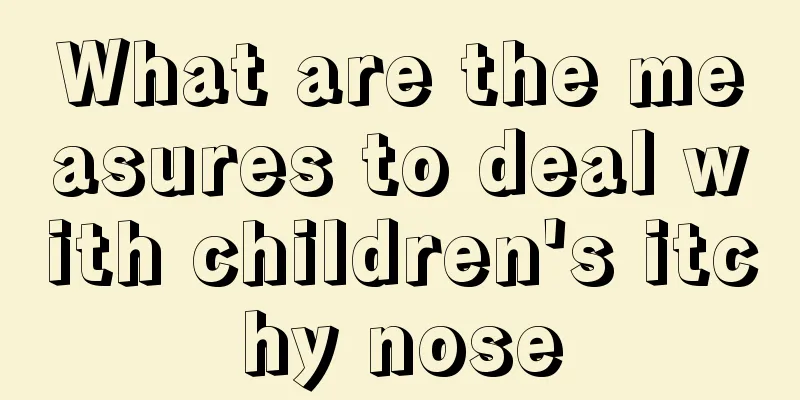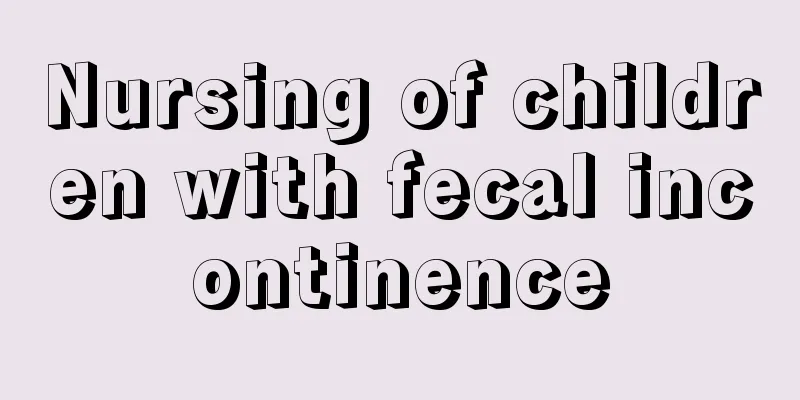Why does my child's nose always bleed?

|
Some children often have nose bleeding during their growth. The reason for nose bleeding is the rupture of capillaries in the nasal cavity. Many children may have hit their noses when they were young, which will cause the inner wall of the nasal cavity to be very thin. After a little damage, it will bleed frequently. So why do children always have nose bleeding? Causes of frequent nose bleeding in children 1. The structure of a child's nose Children's noses are different from adults' and are not as strong and firm as theirs. The site of nose bleeding in children is mostly located in the front part of the nasal cavity, that is, in front and below the nasal septum. There are many blood vessels here, but they are not deep. In addition, children's nasal mucosa is weak. Once it is hurt from the outside, the mucosa is easily damaged and swelled, making nosebleeds prone to occur. 2. Children's hygiene habits Children are still in the early stages of developing hygiene habits, and many children are not able to maintain complete cleanliness and hygiene, so they have not yet been able to get rid of bad habits. Some children like to pick their noses with their fingers, which can easily cause injury to the mucous membrane and bleeding. 3. Climate issues When the weather becomes dry, the mucous membranes in the nose will also dry and crust over, causing nosebleeds. 4. Vitamin Lack Nose bleeding may also occur when the body lacks certain vitamins, such as vitamin C, K, and P, or when it lacks calcium. 5. Certain diseases Any systemic disease that can cause abnormal blood pressure fluctuations, blood dysfunction, or damage to blood vessel walls can cause nose bleeding. 6. Cold Sometimes some acute febrile illnesses can also cause nosebleeds. In addition to colds, typhoid fever, measles, hepatitis, etc. can also cause nosebleeds. 7. Genetics If there is someone in the family with hereditary hemorrhagic telangiectasia, then the offspring may also have this disease because the lack of blood vessel constriction makes the nose bleed easily. In addition to the above reasons, there are some people with idiopathic nosebleeds, called nosebleed patients. For any disease, prevention is better than cure. Children’s nosebleeds can be serious or minor, but we cannot ignore it. |
<<: 7-year-old boy sweats while sleeping at night
>>: Can children have their teeth extracted?
Recommend
Eight-month-old baby can't sit
As the old saying goes: three turns and six sits....
What should I do if my baby has a fever of 39 degrees and has convulsions?
Each of us pays special attention to the baby'...
What causes bad breath in a three-year-old child?
In life, some parents find that their babies also...
Introduction to basic knowledge of child health care
Young children are the group that needs the most ...
What should I do if my child has poor gastrointestinal absorption?
The digestive function of children's stomach ...
3-year-old child's hands and feet peeling
Many parents think that peeling hands and feet on...
There is a hard lump behind the child's ear
Children themselves often don’t care or worry muc...
What’s going on if a child suddenly develops a lot of lumps on his body?
In daily life, people will develop various skin d...
What are the foods for children to clear away heat and detoxify?
There are many foods that can clear away heat and...
What is the secret to children's growth?
Whether a child can grow taller depends on many f...
What to do if your baby's skin is very dry
In winter, the skin of many babies will become ve...
What should I do if my newborn baby has a fever?
Many people ask what to do if a child has a fever...
What should I do if my child has diarrhea and watery stools?
Children are prone to diarrhea. If the diarrhea i...
Why do newborns have cold hands and feet?
We all know that a person's physical health c...
Children should be alert to the dangers of taking too many calcium tablets!
Calcium plays a very important role in children&#...









